#abolitionist movement
Text

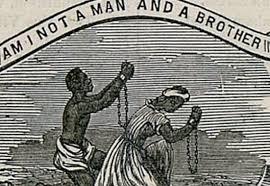
An Act of Parliament freed 800,000 slaves on this day in 1834
#Emancipation Day#British Empire#1 August 1834#slavery#UK#abolitionist movement#William Wilberforce#liberation#Caribbean#West Indies#Act of Parliament#Victoria & Albert
30 notes
·
View notes
Text
Frederick Douglass-”The Narrative of the Life of Frederick Douglass"
My term of actual service to Mr. Edward Covey ended on Christmas day, 1833. The days between Christmas and New Year’s day are allowed as holidays, and, accordingly, we were not required to perform any labor, more than to feed and take care of the stock. This time we regarded as our own, by the grace of our masters; and we therefore used or abused it nearly as we pleased.
Those of us who had families at a distance, were generally allowed to spend the whole six days in their society. This time, however, was spent in various ways. The staid, sober, thinking and industrious ones of our number would employ themselves in making corn-brooms, mats, horse-collars, and baskets; and another class of us would spend the time in hunting opossums, hares, and coons. But by far the larger part engaged in such sports and merriments as playing ball, wrestling, running footraces, fiddling, dancing, and drinking whisky; and this latter mode of spending the time was by the far the most agreeable to the feelings of our masters.
A slave who would work during the holidays was considered by our masters as scarcely deserving them. He was regarded as one who rejected the favor of his master. It was deemed a disgrace not to get drunk at Christmas; and he was regarding as lazy indeed, who had not provided himself with the necessary means, during the year, to get whisky enough to last him through Christmas.”

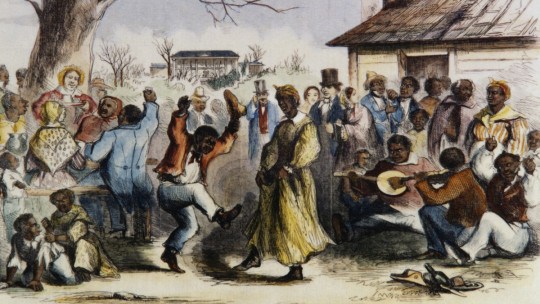
#frederick douglass#Life and Times of Frederick Douglass#slavery#1619 project#abolitoinists#abolitionist movement#civil rights movement#civil rights act#Civil Rights History#black history#civil war#slave narratives#history of slavery#black lives movement#black lives matter#fugitive slaves#Fugitive Slave Act#fugitives slave law#christmas
13 notes
·
View notes
Text
PAINT-A-BOX TRIBUTE TO FREDERICK DOUGLASS
I included this photograph because of the following news item [31 July 2023] "A striking bronze statue of author, anti-slavery campaigner and early champion of women’s rights Frederick Douglass has been unveiled in Belfast city centre." The lifesize statu
STREET ART ON THE GRAND PARADE IN CORK CITY ON A REALLY WET DAY
It should be mentioned that I have been aware of Frederick Douglass since 1964 because I had an American teacher who had been a missionary priest and had been a great admirer of Frederick Douglas and Susie King Taylor [the first African American Army nurse].
I included this photograph because of the following news item [31 July…

View On WordPress
#A7RIV#abolitionist#abolitionist movement#American social reformer#antislavery writings#cork city#Fotonique#Frederick Douglass#grand parade#Infomatique#orator#paint-a-box#slavery#Sony#statesman#Statue In Belfast#street art#William Murphy#writer
0 notes
Text
Fun fact for the Danny Phantom fandom: the word "ectoplasm" was coined in 1894 by a psychical researcher who didn't believe in life after death AND was a racist who supported eugenics. How fitting, then, that ectoscientists after him would believe that ghosts aren't really sentient.
#in my fics the GIW was founded in the 19th or early 20th centuries as a reactionary backlash to the spiritualist movement#because many prominent spiritualists were abolitionists and socialists and etc OF COURSE there would be a government branch that looked at#that and said Actually Ghosts Are Illegal Now#danny phantom
27 notes
·
View notes
Text
I think people assume that I somehow separate my religion from my politics because I don't wish to codify my morality into punitive laws. Really my rejection of punishment as a system for justice is actually rooted in my religious conviction that human society should be founded on love and forgiveness. I have a strong conviction that we should reduce harm not by inflicting more violence on each other but through compassionate care, protection, and reconciliation. Who am I to cast stones on sinners, when I myself am a sinner?
#meditating on Love has made me much more sympathetic towards the prison abolitionist movement#i do not think i would have come to this point if it were not for christ jesus#i personally am a very vindictive individual
244 notes
·
View notes
Text
if nothing else u must remember in ur hearts of hearts disposability is the way of our world currently. waste, alienation, isolation, grimdark shounen, all that glaze and polish and bandaids being traded out for prettier bandaids like ai fanart/art and my local university renovating every community structure without ever divesting. you must remember what u see. U have an ability to remember. It is essential u get it back and go back for it, every day, like taking a healing medicine, to remind urself u have the ability to remember and to cease forgetting.
#u have an ability to cease forgetting to slow it down to obstruct it. In ur body. The bodymind is both clever and elusive when u do not take#yours seriously. I need you to take your bodymind seriously now. Go to bed and eat and drink water and piss and shit and remember what#kinda world we live in that let 2 medics fail hind that baby girl with a mother waiting for her so quickly it inspired killing intent in me#remember what it means to nurse the intent within you. It will begin to trust you and you will begin to see that your bodymind is on your#side and it has been since u were born and there has been violence visited upon you and your anger and nausea is your way forward.#Go forward and throw off all your baggage. You must be militantly on your own side as anne lamott said in the 1990s. When u begin to take#urself seriously you will hear a new kind of gong an old kind of gong and it will resonate within you and grow from there outwards.#Burn and shine baby. Burn and shine. Be like the sun. Don't ask if you're good enough. Burn and shine.#Be like water as the abolitionists say. Be like water. Be like the trees. Be like water. Movement is all we can speak of so make your roots#We need you.#reminders#how to be a militant#survival#we can grow the spines we need to stand up for our lives.
5 notes
·
View notes
Text
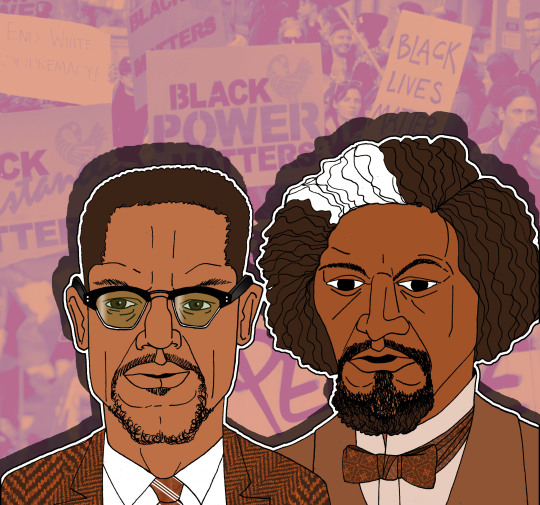
Malcolm X and Frederick Douglass.
Happy Black History Month 🖤
#malcolm x#frederick douglass#black history#black history month#black history matters#black history is american history#black artists#african american art#ajuan mance#black men#black art#black artists on tumblr#black power#african american#civil rights movement#abolitionist
4 notes
·
View notes
Text
Sarah Parker Remond (June 6, 1826 – December 13, 1894) was an American lecturer, activist and abolitionist campaigner.
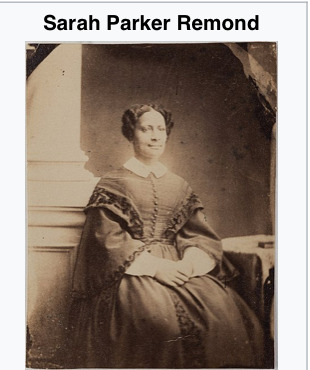
Born a free woman in the state of Massachusetts, she became an international activist for human rights and women's suffrage. Remond made her first public speech against the institution of slavery when she was 16 years old, and delivered abolitionist speeches throughout the northeastern United States. One of her brothers, Charles Lenox Remond, became known as an orator and they occasionally toured together for their abolitionist lectures.
Eventually becoming an agent of the American Anti-Slavery Society, in 1858 Remond chose to travel to Britain to gather support for the growing abolitionist cause in the United States. While in London, Remond also studied at Bedford College, lecturing during term breaks. During the American Civil War, she appealed for support among the British public for the Union and their blockade of the Confederacy. After the conclusion of the war in favor of the Union, she appealed for funds to support the millions of the newly emancipated freedmen in the American South.
From England, Remond went to Italy in 1867 to pursue medical training in Florence, where she became a physician. She practiced medicine for nearly 20 years in Italy and never returned to the United States, dying in Rome at the age of 68.
Early years
Born in Salem, Massachusetts, Remond was one of the between eight and 11 children of John Remond and Nancy (née Lenox) Remond.[1] Nancy was born in Newton, daughter of Cornelius Lenox, a Revolutionary War veteranwho had fought in the Continental Army, and Susanna Perry.[2] John Remond was a free person of color who immigrated to Massachusetts from the Dutch colony of Curaçao as a 10-year-old child in 1798. John and Nancy married in October 1807, in the African Baptist Church in Boston. In Salem, they built a successful catering, provisioning, and hairdressing business, becoming well-established businesspeople and activists.
The Remonds tried to place their children in a private school, but they were rejected because of their race. When Sarah Remond and her sisters were accepted to a local high school for girls which was not segregated, they were expelled, as the school committee was planning to found a separate school for African-American children. Remond later described the incident as engraved in her heart "like the scarlet letter of Hester."[1] In 1835, the Remond family moved to Newport, Rhode Island, where they hoped to find a less racist environment in which to educate their children. However, the schools refused to accept black students. Instead, some influential African Americans established a private school, where Remond was educated.[1]
In 1841, the Remond family returned to Salem.[1] Sarah Remond continued her education on her own, attending concerts and lectures, and reading widely in books, pamphlets and newspapers borrowed from friends, or purchased from the anti-slavery society of her community, which sold many inexpensive titles.[3] The Remond family also took i
n as boarders students who were attending the local girls' academy, including Charlotte Forten (later Grimké).[4]
Three of Remond's sisters built a business together: Cecilia (married to James Babcock), Maritchie Juan, and Caroline (married to Joseph Putnam),[4] "owned the fashionable Ladies Hair Work Salon" in Salem, as well as the biggest wig factory in the state.[5] Their oldest sister Nancy married James Shearman, an oyster dealer. The Remond brothers were Charles Remond, who became an abolitionist and orator; and John Remond, who married Ruth Rice, one of two women elected to the finance committee of the 1859 New England Colored Citizens' Convention.
Anti-slavery activism and lecturing
Salem in the 1840s was a center of anti-slavery activity, and the whole family was committed to the rising abolitionist movement in the United States. The Remonds' home was a haven for black and white abolitionists, and they hosted many of the movement's leaders, including William Lloyd Garrison and Wendell Phillips, and more than one fugitive slave fleeing north to freedom. John Remond was a life member of the Massachusetts Anti-Slavery Society.[2] Sarah Remond's older brother Charles Lenox Remond was the first black lecturer of the American Anti-Slavery Society's and considered a leading black abolitionist. Nancy Remond was one of the founders of the Salem Female Anti-Slavery Society.[1] Nancy not only taught her daughters the household skills of cooking and sewing but also to seek liberty lawfully; she wanted them to take part in society.[3] With her mother and sisters, Sarah Remond was an active member of the state and county female anti-slavery societies, including the Salem Female Anti-Slavery Society, the New England Anti-Slavery Society, and the Massachusetts Anti-Slavery Society. She also regularly attended antislavery lectures in Salem and Boston.[2]
With the support and financial backing of her family, Sarah Remond became an anti-slavery lecturer, delivering her first lecture against slavery at the age of 16, with her brother Charles in Groton, Massachusetts, in July 1842.[6] Remond rose to prominence among abolitionists in 1853, when she refused to sit in a segregated theater section. She had bought tickets by post for herself and a group of friends, including historian William C. Nell, to the popular opera, Don Pasquale, at the Howard Athenaeum in Boston.[7] When they arrived at the theatre, Remond was shown to segregated seating. After refusing to accept it, she was forced to leave the theatre and pushed down some stairs.[3] Remond sued for damages and won her case. She was awarded $500, and an admission by theatre management that she was wronged; the court ordered the theater to integrate all seating.[7][8]
In 1856, the American Anti-Slavery Society hired a team of lecturers, including Remond; Charles, already well known in the U.S. and Britain; and Susan B. Anthony, to tour New York State addressing anti-slavery issues. Over the next two years, she, her brother, and others also spoke in New York, Massachusetts, Ohio, Michigan and Pennsylvania.[2] She and other African Americans were often given poor accommodation due to racial discrimination.[3] Although inexperienced, Remond rapidly became an effective speaker. William Lloyd Garrison praised her "calm, dignified manner, her winning personal appearance and her earnest appeals to the conscience and the heart."[9] Sarah Clay wrote that Remond's every word "waked up dormant aspirations which would vibrate through the ages."[1] Over time, she became one of the society's most persuasive and powerful lecturers.[10]
Abby Kelley Foster, a noted abolitionist in Massachusetts, encouraged Remond when they toured together in 1857.[11] On December 28, 1858, Remond wrote in a letter to Foster:[12]
I feel almost sure I never should have made the attempt but for the words of encouragement I received from you. Although my heart was in the work, I felt that I was in need of a good English education ... When I consider that the only reason why I did not obtain what I so much desired was because I was the possessor of an unpopular complexion, it adds to my discomfort.
see rest of article
#Sarah Parker Remond#June 6#june 6 1826#Women in history#Black women in history#Black women in the Abolitionist movement#Black women in medicine
9 notes
·
View notes
Text
There's a question which the west coast Fallout games are quietly litigating, which is that age-old gotcha about what you do with the remaining orcs once you've deposed Sauron. In the original Fallout, the Super Mutants are basically universally aligned against the quote-unquote "good guys," for whatever value of that term is applicable to the wasteland at large, but subsequent games make it clear that this was an ideological thing, and a product of the political moment of the mutants creation rather than an ontological quality that they have. The game is very aware that this is something that was done to them, and the tragedy of that; the first mutant you're likely to run into is dying scared and alone.
Fallout 2 presents super mutants who've broken in every direction ideologically in the aftermath of the Unity's collapse; the peacemakers under Marcus at Broken Hills, Gond as a member of the abolitionist NCR rangers, reactionary remnants of the original mutant army, genocidal self-hating fascists like Frank Horrigan. Fallout: New Vegas iterates on this beautifully. The mutants dovetail perfectly with the theme of how every faction in the wasteland is trying and oftentimes failing to reckon with the weight of history. Their utopian movement imploded outside of living memory, closer to the apocalypse than to the present day. The survivors- who can only dwindle in number due to their sterility- have been left to reckon with that in whatever way they can. And they have their backs to about a hundred and twenty years of that reckoning not going particularly well, of being the bugbear and boogeymen for bullies and ideologues whose grandparents weren't even alive to suffer from the Unity's actions. The lack of a collective future for mutantkind casts a pall over even the best ending for Jacobstown; humans are collectively resilient within this setting, but through violence, and accidents, dementia and senility, the day will inevitably come when there are no mutants left. And worse still will be the day before that, when there's only one mutant left. Finding some form of satisfaction or contentment within that dwindling window, with the world against you, is a task that falls to the individual mutant. (Take Mean Sonovabitch, for example. He seems to be doing alright for himself.)
Then we slide on over to the east coast games, where the mutants are.... morons. Cannibals. Marauders. And when you meet one who isn't, the game throws itself a ticker-tape parade for containing such an audacious twist. To go back to the orc thing, it's like if The Hobbit had contained a lengthy, empathetic subplot about the rich internality and fleshed-out-if-deeply-flawed ideology of the orcs, and then there was a pivot to treating them like a monolithic block of ontologically evil marauders in LOTR. While staring you straight in the eye the whole time, unblinking. Daring you to say something
5K notes
·
View notes
Text
“I am typing these words as June 2003 surges with Pride. What year is it now, as you read them? What has been won; what has been lost? I can’t see from here; I can’t predict. But I know this: You are experiencing the impact of what we in the movement take a stand on and fight for today. The present and past are the trajectory of the future. But the arc of history does not bend towards justice automatically—as the great Abolitionist Frederick Douglass observed, without struggle there is no progress . . .”
- Leslie Feinberg
#stone butch blues#leslie feinberg#activism#praxis#social justice#power to the people#workers of the world unite#communism#queer history#queer rights#queer
2K notes
·
View notes
Text
I liked this video from Jamelle Bouie a lot, and I liked it even more because he delivered it as a floating eyes and mouth over an apple.
I'm going to respond to this comment as an apple because I kind of like doing it. It's fun. And I'm gonna respond to this comment by way of a story.
So, all Americans know about the anti-slavery movement, the abolitionist movement. And the way we're taught about the abolitionist movement or the anti-slavery movement, whatever you want to call it, is kind of that this was inevitable--that obviously slavery is terrible and obviously there are people against it and it was gonna end. We teach it as a thing that was bound to happen. So the Civil War comes and slavery is ended, and it's sort of a very neat story.
But I'm gonna ask you to put yourself in the perspective of an abolitionist or an anti-slavery politician in, say, 1840 or 1848; and if you are one of these people, you have a deep-seated opposition to slavery. If you're an abolitionist, you may have spent the previous 10 or 20 years traveling the country, giving speeches, rallying people, doing everything you can to stir up moral outrage at slavery. If you're a politician, you have been working, doing a grind of politics--somewhat dangerous, because people may not like slavery, but they're not super thrilled about black people either--but you are in legislatures, you are filing petitions, you are building coalitions, you are trying to make whatever headway you can to, if not challenge slavery, then at least challenge some of the racist and anti-black laws that are on the books. Both--whether you're an anti-slavery politician or ablitionist--you do not think in 1848 that slavery is gonna be over in your lifetime. You hope that it might be; but you have no particular expectation that it will be. You are not optimistic about the end of slavery. You may not even be optimistic about the world as it exists, because you look around and you see human bondage and horrible brutality that's been there for hundreds of years, and for all you know will be there when you're long dead.
So the question to ask is, why do these things? Why did these people bother? Why did they continue struggling against slavery, despite not really having any optimism about the end of the institution? And the answer--beyond a deep-seated sense of moral commitment--is that these people didn't need to be optimistic in the ultimate outcome, they just needed to be optimistic in the ability of humans, of people to make change; they needed to be hopeful about human agency. That's what they needed, and that's what they had. And so they did not know how far they would be able to take the baton, but they worked and hoped that when the end of their lives came, they'd be able to hand it off to people who could take it even further than they could.
The abolitionists and the anti-slavery politicians were essentially living out what Antonio Gramsci called the pessimism of the intellect and the optimism of the will. I think the exact quote is, "I'm a pessimist because of my intelligence, but I am an optimist because of my will." What this is is recognizing the reality of the world around you, not looking at the world as if it's any better--or any worse--but any better than it is; but not pinning your hopes for a better world on some sort of linear change, linear move towards something better; but pinning your hopes on one of the true constants of human society, which is the ability of human beings to work their will on the world, and the ability of humans to push and persevere.
So, this is all to say that I am not asking anyone to be optimistic about the world. That's very silly; the world's a very terrible place right now--not the worst it could be, but pretty bad--and I do not contest that. But I do think that people should have a bit of this optimism of the will, and this optimism about human agency, and our ability to build a better world. And this is sort of where my very strong distaste for doomerism comes from, because the sense that it is the worst, and nothing can be better, is just fundamentally incompatible with any kind of optimism of the will, any kind of belief in human agency and belief in our ability to change the world around us. And it's also why you will find me on this account often pushing back against the most negative renderings of what is happening in our society, for example. Not because I think everything is great--I do not--but because I do think that the path towards change requires one to have clear eyes about the situation in which you find yourself; and clear eyes both means recognizing the bad, but it also means recognizing those areas where you can make gains, and where you can find success; and where you can win minor victories.
And you may say, well, what's the point of a minor victory? But I think what the anti-slavery struggle demonstrates, what the civil rights struggle demonstrates, what the labor struggle demonstrates in this country, is that minor victories become fuel for modest victories, become fuel for major victories, and major victories can be the things that fundamentally change the entire field of play. So. Pessimism of the intellect, my friend, optimism of the will.
#i do not think i am very optimistic as a rule#but i'm still much more optimistic than bouie#nonetheless#i share his distaste for doomerism and for similar reasons#you cannot be clear-eyed about the world if you are consumed with pessimism
601 notes
·
View notes
Text
As I watched people online debate the models of anti-colonial struggle, raising comparisons to Algeria and North America and South Africa, I found myself returning to the foundational Jewish liberation myth: the Exodus. It was hard not to think about the moment in the Passover seder when we lessen the wine in our full cups with our pinkies as we recite the plagues. This ritual has materialized as an indispensable touchstone, insisting that to hold onto our humanity we must grieve all violence, even against the oppressor.
But I also thought of the plagues themselves, particularly the final one, the slaying of the first born—children, adults, the elderly. It seems that hiding in our liberation myth is a recognition that violence will visit the oppressor society indiscriminately. I know that I have many friends, and that Currents has many readers, who are asking themselves how they can be part of a left that seems to treat Israeli deaths as a necessary, if not desirable, part of Palestinian liberation. But what Exodus reminds us is that the dehumanization that is required to oppress and occupy another people always dehumanizes the oppressor in turn. For people who feel like their pain is being devalued, it’s because it is; and that devaluation is itself a hallmark of the cycle of the diminishing value of human life. As the abolitionist geographer Ruth Wilson Gilmore has said, “Where life is precious, life is precious.” We are seeing the ways that Jews as the agents of apartheid will not be spared—even those of us who have devoted our lives to the work of ending it. (I am thinking of Hayim Katsman, zichrono l’vracha, killed by Hamas, an activist against the expulsion of the West Bank community of Masafer Yatta, and Vivian Silver, a hostage in Gaza, who is known to many of its residents as the person they meet at the Erez Crossing who advocates for and facilitates their transfers to Israeli hospitals for treatment.)
[...]
On the left, I hope we do not mistake the inevitability of the violence for an inescapable limit on our work or the quality of our thought. Even if our dreams for better have failed, they must accompany us through this moment to the other side.
663 notes
·
View notes
Text
As I watched people online debate the models of anti-colonial struggle, raising comparisons to Algeria and North America and South Africa, I found myself returning to the foundational Jewish liberation myth: the Exodus. It was hard not to think about the moment in the Passover seder when we lessen the wine in our full cups with our pinkies as we recite the plagues. This ritual has materialized as an indispensable touchstone, insisting that to hold onto our humanity we must grieve all violence, even against the oppressor.
But I also thought of the plagues themselves, particularly the final one, the slaying of the first born—children, adults, the elderly. It seems that hiding in our liberation myth is a recognition that violence will visit the oppressor society indiscriminately. I know that I have many friends, and that Currents has many readers, who are asking themselves how they can be part of a left that seems to treat Israeli deaths as a necessary, if not desirable, part of Palestinian liberation. But what Exodus reminds us is that the dehumanization that is required to oppress and occupy another people always dehumanizes the oppressor in turn. For people who feel like their pain is being devalued, it’s because it is; and that devaluation is itself a hallmark of the cycle of the diminishing value of human life. As the abolitionist geographer Ruth Wilson Gilmore has said, “Where life is precious, life is precious.” We are seeing the ways that Jews as the agents of apartheid will not be spared—even those of us who have devoted our lives to the work of ending it. (I am thinking of Hayim Katsman, zichrono l’vracha, killed by Hamas, an activist against the expulsion of the West Bank community of Masafer Yatta, and Vivian Silver, a hostage in Gaza, who is known to many of its residents as the person they meet at the Erez Crossing who advocates for and facilitates their transfers to Israeli hospitals for treatment.)
That question of how we recuperate this humanity is ultimately an organizing question. People have repeated over and over again over the last few days that you “cannot tell Palestinians how to resist.” To me, it seems there is a very literal dimension to this axiom: They are not asking. Part of what has made the experience of this event feel so different from the status quo—and so different to Palestinians and Jews—comes from the fact that Palestinians were undeniably the actors, for once, not the acted upon. The protagonists of the story. I consider it an enormous failure of our movements that we have not been able to build a vehicle for that kind of reversal in any other way thus far. Our Jewish movements for Palestine were not powerful enough to stop other Jews from gunning down Palestinians in peaceful marches at the Gazan border fence, or to keep Palestinians from being fired, harassed, and sued for speaking the truth about their experience or—God forbid—advocating the nonviolent tactic of boycott. And now, we do not have a shared struggle able to credibly respond to these massacres of Israelis and Palestinians. With all of the work that many Jews and Palestinians have done to reach toward each other over the years, I believe at heart it is this failure that is now driving us apart. There is no formidable political formation that I know of that can hold the political subjectivity of both Jews and Palestinians in this moment without simply attempting to assimilate one into the other. No place where Jews and Palestinians who agree on the basics of Palestinian liberation—right of return, equality, and reparations—are poised to turn the synthesis of these two subjectivities into a coherent strategy.
One of the most terrible things about this event is the sense of its inevitability. The violence of apartheid and colonialism begets more violence. Many people have struggled with the straightjacket of this inevitability, straining to articulate that its recognition does not mean its embrace. I am reminding myself that it was from Palestinians, many of them writing and speaking in these pages, that I learned to think of Palestine as a site of possibility—a place where the very idea of the nation-state, which has so harmed both peoples, could be remade or destroyed entirely. And it was Palestinians who opened my thinking to multiple visions of sharing the land. On the left, I hope we do not mistake the inevitability of the violence for an inescapable limit on our work or the quality of our thought. Even if our dreams for better have failed, they must accompany us through this moment to the other side. We need to imagine a movement for liberation better even than the Exodus—an exodus where neither people has to leave. Where people stay to pick up the pieces, rearranging themselves not just as Jews or Palestinians but as antifascists and workers and artists. I want what Puerto Rican Jewish poet and activist Aurora Levins Morales describes in her poem “Red Sea”:
We cannot cross until we carry each other,
all of us refugees, all of us prophets.
No more taking turns on history’s wheel,
trying to collect old debts no-one can pay.
The sea will not open that way.
This time that country
is what we promise each other,
our rage pressed cheek to cheek
until tears flood the space between,
until there are no enemies left,
because this time no one will be left to drown
and all of us must be chosen.
This time it’s all of us or none.
Arielle Angel, “‘We Cannot Cross Until We Carry Each Other’,” Jewish Currents, October 12, 2023.
501 notes
·
View notes
Text
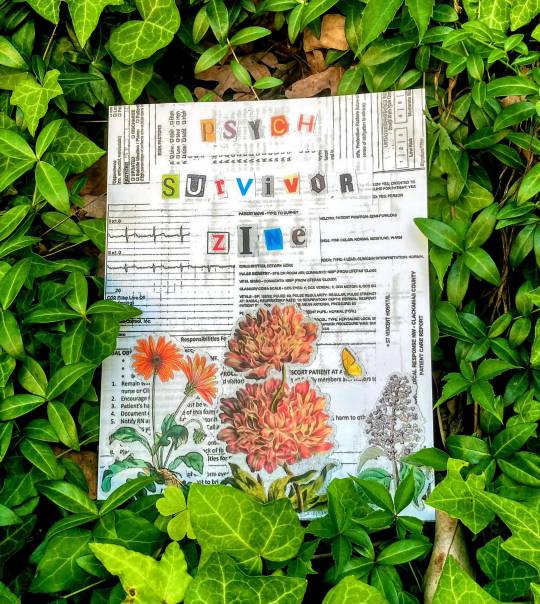
Image description: [ a photo of the Psych Survivor zine in a bush of ivy. The cover is a collage made out of medical records, vintage flower drawings, and magazine letters spelling “psych survivor zine".]
Hello everyone! I am so thrilled to announce the launch of the psych survivor zine, now available to download on www.psychsurvivorarchive.com.
A little bit about this project:
The Psych Survivor Archive is an abolitionist organization deeply invested in mad liberation and cross-movement organizing.
We host two projects: the Psych Survivor Zine and the Digital Story Archive. The Psych Survivor Zine celebrates Mad art in volumes released twice a year, with thematic prompts for each edition. The Digital Story Archive is a more informal forum for psych survivors to write about our lives and share as much as we want, when we want, how we want.
Through this archive, I hope to create a platform where psych survivors are believed and the psych system is held accountable for the ways it has harmed us. Our pain, resistance, knowledge, and grief are worth listening to, and I offer up this archive as a communal method of bearing witness.
This space is for the imperfect crazy person, the noncompliant patient, those of us who trash our rooms in the psych ward and yell to ourselves on the street. This space is for our comrades still incarcerated in all kinds of institutions and prisons. This space is for anyone who has been harmed by the psychiatric system and wants to rage about it–and this space is for anyone who doesn’t have the words to talk about it.
This space is for you.
You can download a pdf and an image described pdf for free on the website, or order a physical copy! This zine is incredible-featuring artwork by 13 different Mad artists, the 55 page zine includes collages, poems, harm reduction toolkits, and more!!
Artists include @kihnindewa, @bioethicists, @gothhabiba and @librarycards, among many more!
This project has been really vulnerable and cathartic with me, and I am so excited to share it with you. Feel free to explore the website, submit your story, and check out our resource guide.
#personal#psych survivor#survivingpsych#antipsych#psych abolition#mad liberation#mad pride#psych survivor zine#disability#really really happy with this.#disability pride month#also if i tagged you and you don't want to be tagged pls let me know! i don't know who else from the project is on tumblr#mad punk
870 notes
·
View notes
Text
CHICAGO ABOLITIONISTS SHUT DOWN BANK OF AMERICA BY GLUING ATMS IN RETALIATION FOR THE MURDER OF TORTUGUITA
20th January, Chicago USA.
via: Scenes
“CHICAGO, IL — Friday night, January 20th, Chicago abolitionists in solidarity with the movement to Stop Cop City and Defend the Atlanta Forest glued shut the card reader and keyhole at a Bank of America ATM and “Virtual Banking” facility in Chicago’s affluent Lincoln Park neighborhood (2428 N Lincoln Ave). They also left messages, including STOP COP CITY, DEFEND THE ATLANTA FOREST, and ACAB on the ATM windows and door. The incident was in response to the murder of a forest defender by police in Atlanta on January 18th, 2023.

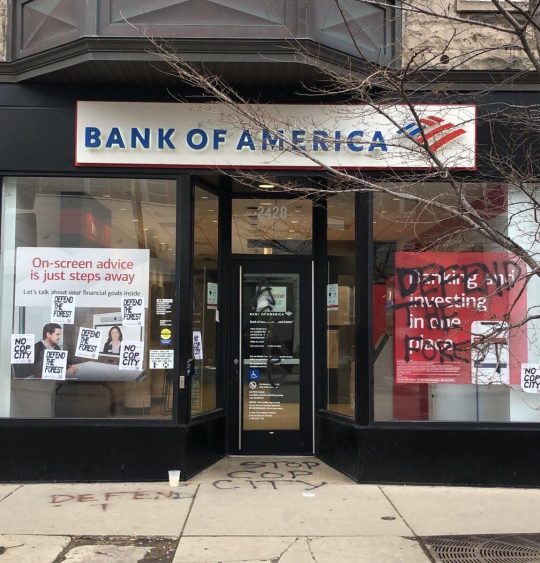
Bank of America is a top funder of police foundations across the US, in particular the Atlanta Police Foundation, which is funding the destruction of Weelaunee Forest in “Atlanta” to build “Cop City.” The intended facility would be a militarized police training compound, including a mock city for cops to practice urban warfare on Atlanta’s residents, particularly the Black and Brown and poor communities adjacent to the forest. In 2020, BOA gave at least $50,000 to the foundation; tax data from 2021-22 is not yet available.
Bank of America also bankrolls the Chicago Police Foundation, with BoA Senior Vice President Patricia Provenzano sitting on its board.
On January 18th, police in Atlanta murdered a forest defender, Manuel “Tortuguita” Teran, as they attempted to force people out of the forest to allow the destruction to proceed. This violence is further proof that police only serve and protect the interests of the wealthy and powerful – bankers and capitalists who will happily have people murdered and ecosystems destroyed to continue hoarding wealth.
From @defendtheatlantaforest @stopcopcity on Instagram, friends said: “Tortuguita was a kind, passionate, loving person cherished by their community. They spent their time between Atlanta, defending the forests from destruction and coordinating mutual aid, and Florida where they helped build housing in low income communities hit hardest by the hurricane. They were a medic, a loving partner, a dear friend, a brave soul, and so much more.”
Chicago activists echo the calls of Atlanta forest defenders to immediately stop the attacks on the forest and abandon plans to build Cop City.”
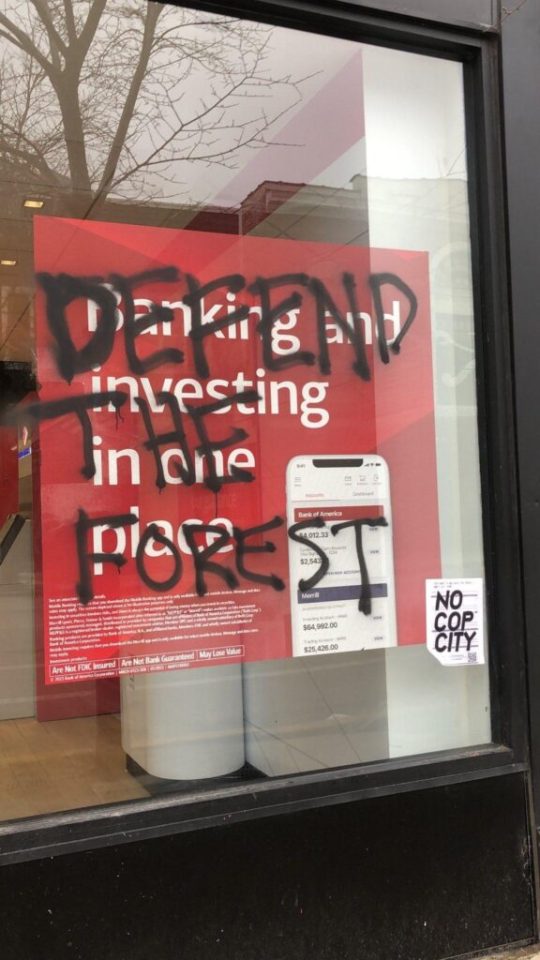
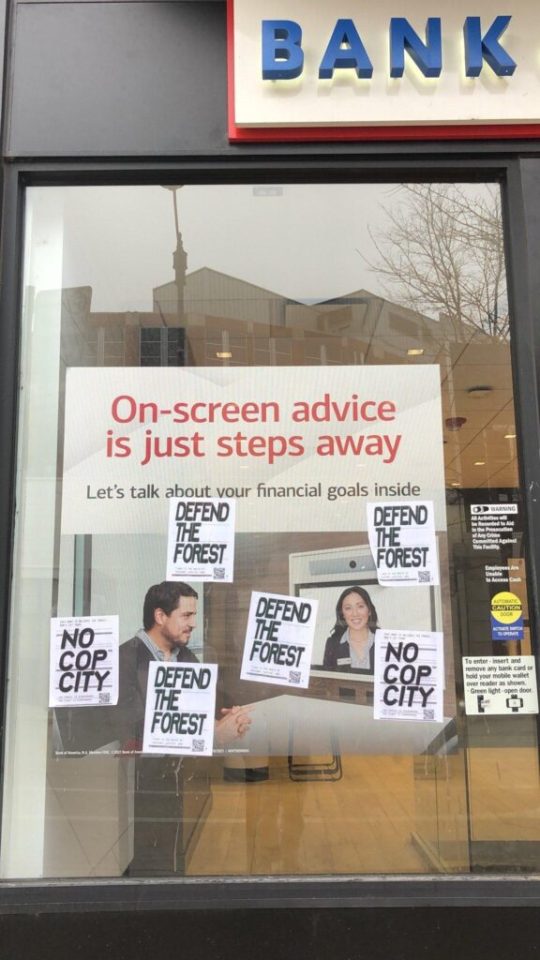
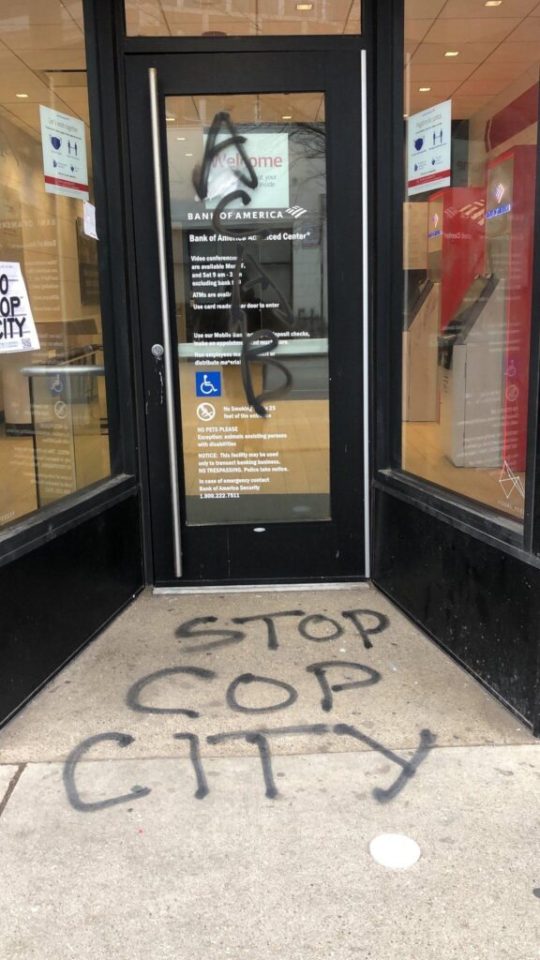
1K notes
·
View notes
Text
After African missionaries circulated initial reports about the slave labor behind sugar in the 1790s, some consumers desisted from sugar entirely -- "anti-saccharites", mostly fervent Christians such as Quakers. As the East India importers created a market in Britain, anti-slavery societies became their free marketing teams, widely distributing pamphlets such as "What Does Your Sugar Cost?" A Cottage Conversation on the Subject of British Negro Slavery. Meanwhile, in America, the free-produce movement was led by black women, who encouraged their segregated groceries to buy only slavery-free goods.
The bind that free Black Americans faced in sourcing their food and raw materials was especially harsh. They were forced to buy "ethical" expensive cotton from white farmers instead of black slaves, which frustrated those trying to support black businesses. They sought coffee from Liberia and Haiti, hoping that the majority black demographics of these countries would support black uplift and prevent slave labor, and these created natural (and, indeed, slavery-free) coffee industries in those countries which indeed persisted for some decades.
The most surprising part of this story comes in the 1840s. After abolishing slavery in 1836, Britain had placed tariffs on slave-produced sugar in order to ensure fairness for British sugar producers who paid their laborers. This inflated sugar prices generally. Without tariffs, "free-labour sugar" would cost three times as much as its competition, defeating the East Indian importers' argument that slavery was a corrupt process which artificially inflated prices. It soon became clear that the writing was on the wall. In 1845, the primary importer of "free-labour sugar" exited the sugar market, and the following year, Britain decided to remove all the tariffs, for the benefit of consumers. Free-labour sugar completely vanished as a category thereafter.
Meanwhile in the United States, abolitionists criticized the free-produce movement as ineffective; similar to "free-labour sugar", it only placed an extra economic burden on those struggling to live ethically. It was recognized on both sides of the Atlantic that making individual consumer choices was not enough, and that systemic change was necessary to permanently eliminate slavery. As a status symbol, though, "free cotton made by escaped slaves" continued to be worn in Britain and attracted comment in aristocratic salons into the 1860s. In this final stage of the movement, free labor was considered to be part of a civilizing project, a way to train ex-slaves in useful arts.
https://www.reddit.com/r/AskHistorians/comments/138i5at/comment/jj04qsx/?context=3
886 notes
·
View notes